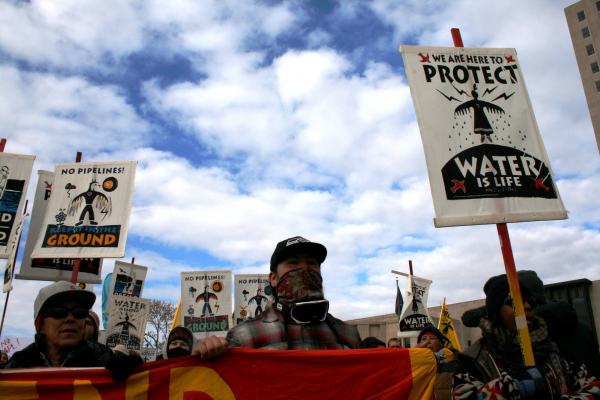Dec 1, 2016
“The police are highly militarized.”
This recent text sent by a close relative at Standing Rock confirms the images we’ve been seeing from the #NoDAPL #StandingRock protests against the Dakota Access Pipeline in North Dakota. On the evening of Nov. 20, local police with armored vehicles fired at water protectors and their allies with water cannons, tear gas, rubber bullets, and percussion grenades; hundreds were injured, and several taken to the hospital. Because of the frigid overnight temperatures in the region, medics at the scene were concerned that the use of water cannons would result in severe medical emergencies or even deaths among the members of the encampment.
Read the Full Article

Already a subscriber? Login
